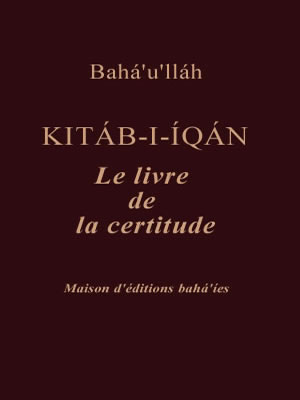


Shoghi Effendi translated the Iqan into masterful English in 1931, and continually stressed the importance of the work, describing it as the “most fundamental book on the Baha’i Revelation,” 5 “the best means of grounding those who become interested in the…teachings,” and “sufficient to make any seeker a true believer in the divine nature of the Faith.” 6 It is one of the books-along with The Dawn-Breakers and Some Answered Questions-to be mastered by every follower of the Faith. Shoghi Effendi went on to describe the Iqan as a “unique repository of inestimable treasures,” 2 occupying a position “of unsurpassed pre-eminence among the doctrinal writings of the Author of the Baha’i Dispensation.” 3Ī model of Persian prose, of a style at once original, chaste and vigorous, and remarkably lucid, both cogent in argument and matchless in its irresistible eloquence, this Book, setting forth in outline the Grand Redemptive Scheme of God, occupies a position unequalled by any work in the entire range of Baha’i literature, except the Kitab-i-Aqdas, Baha’u’llah’s Most Holy Book. The one who ponders over that book and grasps its full significance will obtain a clear insight into the old scriptures and appreciate the true Mission of the Bab and Baha’u’llah. He then introduces the Bab and His Message, and applies to that new Revelation the same standards he uses to verify the truth of the previous Prophets. In doing so, Baha’u’llah reinforces the oneness of God’s Divine Manifestations and, for readers, the validity of their own religion. Written by Baha’u’llah during His exile to Baghdad, and before He publicly announced His own station and Mission, the Iqan surveys the lives and sufferings of the Prophets of the past, validates Their Missions and the common features of Their Faiths. If you’ve ever wondered what the most important book of Baha’u’llah is-the one from which you might gain a better understanding of the basic beliefs and spiritual significance of the Baha’i Faith-then look no further than the Kitab-i-Iqan (“The Book of Certitude”).


 0 kommentar(er)
0 kommentar(er)
